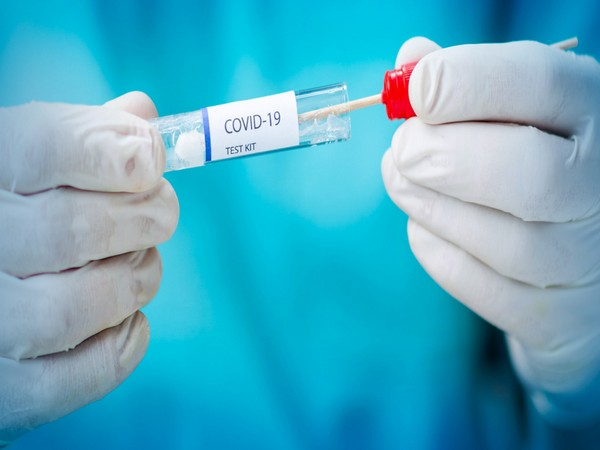Health News Roundup: China daily local confirmed COVID cases fall to nearly two-month low; Dozens of firms to make cheap version of Merck COVID pill for poorer nations and more
From the earliest days of the pandemic, public health officials have expressed hope that it was possible to achieve herd immunity against COVID-19, as long as a high enough percentage of the population was vaccinated or infected with the virus. France to loosen COVID curbs in February, allowing popcorn in cinemas again France will ease work-from-home rules from early February and allow nightclubs to reopen two weeks later as the general COVID-19 situation in the country is starting to improve, Prime Minister Jean Castex said on Thursday.

Following is a summary of current health news briefs.
China daily local confirmed COVID cases fall to nearly two-month low
China reported on Friday the lowest daily tally of local confirmed COVID-19 cases in nearly two months, after a national strategy to quickly curb flare-ups forced worst-hit cities to lockdown affected communities and cut business activity. China reported 23 domestically transmitted infections with confirmed symptoms for Thursday, official data showed, down from 43 a day earlier.
Dozens of firms to make cheap version of Merck COVID pill for poorer nations
Nearly 30 generic drugmakers in Asia, Africa and the Middle East will make cheap versions of Merck & Co's COVID-19 pill, under a landmark U.N.-backed deal to give poorer nations wider access to a drug seen as a weapon in fighting the pandemic. Merck's early greenlight to production of its anti-viral pill molnupiravir by other companies during the pandemic is a rare example in the pharmaceutical sector, which usually protects its patented treatments for longer periods.
U.S. to require COVID vaccines for essential workers crossing borders
The U.S. Department of Homeland Security (DHS) is announcing Thursday it is requiring that non-U.S. essential workers such as truck drivers and nurses who are crossing land borders be fully vaccinated against COVID-19, effective Saturday. The Biden administration first announced in October that effective Nov. 8 it would again allow non-essential foreign visitors to travel from Canada and Mexico into the U.S. across land borders if they were vaccinated.
Hong Kong warns people to stop trying to prevent COVID hamster cull
Hong Kong police will deal with pet lovers who try to stop people giving up their hamsters to be put down, or who offer to care for abandoned hamsters, authorities said, after they ordered a cull of the cuddly rodents to curb the coronavirus. On Tuesday, officials ordered the killing of about 2,000 hamsters from dozens of pet shops after tracing a coronavirus outbreak to a worker at a shop, where 11 hamsters later tested positive for COVID-19.
Pfizer says has approval in Japan for COVID vaccine for children aged 5-11
Pfizer Inc said on Friday it received special approval in Japan for its COVID-19 vaccine to be given to children aged 5-11. The mRNA-type vaccine developed by Pfizer and BioNTech SE has been the most commonly used in Japan for protection against the coronavirus so far.
Sputnik V shows higher Omicron-antibody levels than Pfizer in preliminary study
A small preliminary laboratory study has shown that levels of Omicron-neutralising antibodies of people vaccinated with Russia's Sputnik V vaccine did not decline as much as of those who had Pfizer shots. The joint Russian-Italian study - funded by the Russian Direct Investment Fund, which markets Sputnik V abroad - compared the blood serum of people who had received the different vaccines.
Analysis-How Omicron highlights fading hope of herd immunity from COVID
The Omicron variant, which is spreading far faster than previous versions of the coronavirus, is not likely to help countries achieve so-called herd immunity against COVID-19, in which enough people become immune to the virus that it can no longer spread, leading disease experts say. From the earliest days of the pandemic, public health officials have expressed hope that it was possible to achieve herd immunity against COVID-19, as long as a high enough percentage of the population was vaccinated or infected with the virus.
France to loosen COVID curbs in February, allowing popcorn in cinemas again
France will ease work-from-home rules from early February and allow nightclubs to reopen two weeks later as the general COVID-19 situation in the country is starting to improve, Prime Minister Jean Castex said on Thursday. Caps on the number of people allowed into sports and entertainment venues will also be lifted on Feb. 2, and masks will no longer be required outdoors from that date.
Austria set to make COVID shots compulsory after bill clears parliament
Austria's lower house of parliament passed a bill on Thursday making COVID-19 vaccinations compulsory for adults as of Feb. 1, bringing Austria closer to introducing the first such sweeping coronavirus vaccine mandate in the European Union. Faced with a stubbornly high number of vaccine holdouts and a surge in infections, the government said in November it was planning the mandate. Since then it has raised the age as of which the mandate will apply, to 18 from 14.
A divided nation: Western Australia stays shut as COVID deaths mount in east
Australia will remain a divided nation with the vast mining state of Western Australia cancelling plans to reopen its borders on Feb. 5 citing health risks from a surge in the Omicron COVID-19 variant in eastern states. Australia's most populous state New South Wales (NSW) on Friday reported its deadliest day of the pandemic
(This story has not been edited by Devdiscourse staff and is auto-generated from a syndicated feed.)
ALSO READ
EXCLUSIVE-U.S. sanctions hamper Russian efforts to repair refineries, sources say
COLUMN-U.S. manufacturers emerge from slump, set to boost fuel use: Kemp
India's stature grew globally as it helped other countries during Covid: Mandaviya
Euro zone yields fall after U.S. jobless claims rise
Euro zone bonds hold steady before key U.S. jobs report










